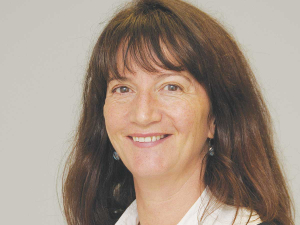M.I.A.
OPINION: The previous government spent too much during the Covid-19 pandemic, despite warnings from officials, according to a briefing released by the Treasury.
 Rural General Practitioners Network chair Dr Fiona Bolden says things which work well in large urban areas, don't work well in rural areas because they are often difficult for people to access.
Rural General Practitioners Network chair Dr Fiona Bolden says things which work well in large urban areas, don't work well in rural areas because they are often difficult for people to access.
Local solutions using local people is the best way of ensuring people in rural areas are vaccinated against Covid-19, according to the chair of the Rural General Practitioners Network.
Dr Fiona Bolden says things such as big vaccination sites, which work well in large urban areas, don't work well in rural areas because they are often difficult for people to access. She says initially the Ministry of Health wasn't focusing on using GP's to deliver vaccines, but this has changed.
However, Bolden says the rural health workforce is comparatively small and needs to be supported with proper funding and staff. She says community trusts and iwi have done a fantastic job in ensuring that rural people - especially Maori - are vaccinated.
"We have seen lots of local solutions, because the one size doesn't fit all and that is certainly the case for the rural workforce," she told Rural News. "We know that we can't do mass vaccinations in rural areas like they do in urban areas."
Bolden says there are many essential workers in rural areas who are engaged in food production and other primary industries - such as forestry. She says in the case of the latter, these people are often forgotten, but with the way the roll-out is now configured, these people will be eligible to get vaccinated.
"Then there is the issue of how you get vaccinated if you are an essential rural worker," she adds. "For farmers it is quite difficult for them to leave their work and get vaccinated. That is why it is so important that we have local vaccination provision, with local providers using general practices, but supported by DHBs."
Bolden says the DHBs are meant to leading the roll out, but they are very reliant on local staff being available to do this and also local people doing the organisation to make it happen.
Bolden works in a practice in Whangamata in the Coromandel and says they recently had a big drive through vaccination centre operating. She says it was great to see how excited the local people were to get vaccinated.
"There was a real feeling of coming together and a relief for these people - especially the elderly. That was really positive."
She says there are still workforces in rural areas that are under extreme pressure and it gives her hope to see people working together across different organisations and communities.
"It is important that decision makers have a good understanding of the particular needs of how health matters in rural communities should be managed and resourced," Bolden adds. "Rural people know their needs better than the people in Wellington."
Reluctant Rural People
Fiona Bolden says with Covid lockdowns more common, rural people are now getting used to 'virtual' consultations with their local GP.
She says under lockdown level 4 only about 30% of patients are seen by GPs.
But Bolden says that virtual consultation is working well for some people who are finding it easier to talk things through with their GP via phone or video link - rather than face-to-face.
"The other thing about that, for rural people, it can be a bonus, because if a person is working on their farm and they need to see a doctor about something, it can take much more time out of their day."
However, Bolden says there are still many rural people who prefer face-to-face contact with their doctor.
The Meat Industry Association of New Zealand (MIA) today announced that Chief Executive Officer Sirma Karapeeva has resigned from the role.
The winners of the 2026 Hawke’s Bay/Wairarapa Dairy Industry Awards were announced at the annual awards dinner held at Copthorne Solway Park in Masterton on Thursday evening.
Environment Southland is welcoming this week’s decision by the Environmental Protection Authority (EPA) to approve the release of Blaptea elguetai, a leaf‑feeding beetle that will help control the highly invasive Chilean flame creeper.
This March, the potato industry is proudly celebrating International Women’s Day on 8 March alongside the International Year of the Woman Farmer, recognising the vital role women play across every part of the sector — from paddocks and packhouses to research, leadership, and innovation.
Fruit trader Seeka posted a record profit and returns to shareholders in 2025.
Recent weather events in the Bay of Plenty, Gisborne/Tairawhiti, and Canterbury have been declared a medium-scale adverse event.

OPINION: A mate of yours truly reckons rural Manawatu families are the latest to suffer under what he calls the…
OPINION: If old Winston Peters thinks building trade relations with new nations, such as India, isn't a necessary investment in…